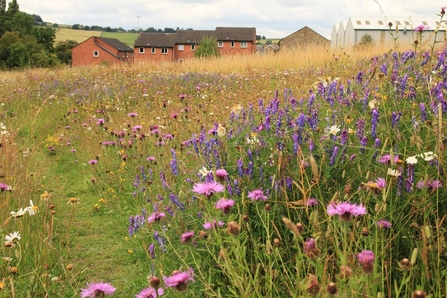As COP26 has closed in Glasgow, all 46 UK Wildlife Trusts believe that:
· The UK Government shot itself in the foot prior to COP26 by cutting foreign aid, failing to ban new coal mines, and offering support for more oil and gas exploration in UK waters
· The UK Government must increase ambition and speed-up carbon reduction
· The aim to ‘keep 1.5° alive’ must be coupled with a local-to-global ‘30 by 30’ nature target. It’s time to get serious about putting nature in recovery across 30% of the UK’s land and sea by 2030 to tackle the twin climate and nature crises
· The agricultural reform currently underway in the UK must work for the climate and nature
· Net Zero is not the destination, merely a waymark point. We should restore nature right now to draw carbon down from the atmosphere, and help repair the climate.
Craig Bennett, Chief Executive of The Wildlife Trusts, says:
“If soaring rhetoric was enough to save the climate and nature, all would be fine. But the gulf between rhetoric and reality these last two weeks in Glasgow has been one of life and death, both for entire ecosystems such as tropical rainforests and coral reefs, and for the communities that depend on them.
We’ve seen some baby steps forward, when giant leaps were needed. The focus on ‘keeping 1.5° alive’ has been welcome, as has the greater recognition of the role that nature can play in helping us tackle the climate crisis. But to deliver this, we need to build a renewed momentum to cut carbon emissions deeper and faster, and we need the world to adopt a local-to-global ’30 by 30’ target for nature at the UN Convention on Biodiversity Diversity meeting taking place in China next spring, so that nature can be put into recovery across 30% of land and sea by the end of the decade.”

